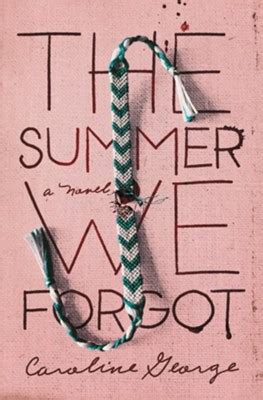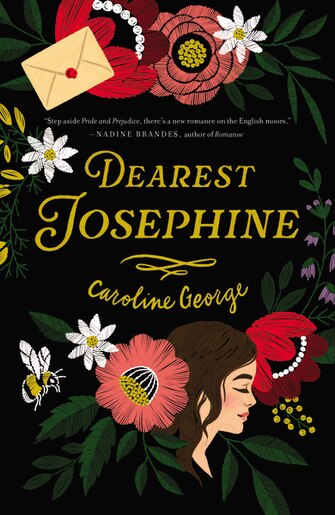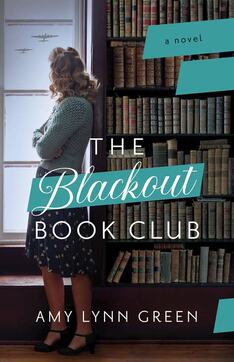|
Summary Some memories are better left forgotten. Darby and Morgan haven’t spoken for two years, and their friend group has splintered. But when the body of their former science teacher is found in the marsh where they attended camp that summer, they realize they have more questions than answers . . . and even fewer memories. No one remembers—or no one is talking. The group of reunited friends suspects that a murderer is stalking the coastal highway 30A, and they are desperate to recover their memories as quickly as possible . . . before their history they can’t remember repeats itself. Everyone has a secret. As tensions rise and time runs out, Darby and Morgan begin to wonder if they can believe one another . . . or if they can even trust themselves. Positives OH. MY. GOODNESS. Look out, we have a new favorite book coming through. This book is brilliant. It channels the vibes perfectly. The setting is so vivid and real, I could picture it immediately even though I live in the country of Indiana and have never been to Florida ever in my life. The book expertly gives us a group of flawed teens who make huge mistakes and bad choices. Teens that anyone, any age can relate to, because we’ve all made huge mistakes and bad choices. It has a beautiful message hidden in the dark waters, reminding us all that no matter what we’ve done or been done to us, we get to choose where we go from here. But the real killer here is the plot. (Yep. I just made that joke.) When I told my sister the premise of the book, she teasingly guessed what the twist would be. I laughed and said, no, that was way too out there, that couldn’t be the answer. IT WAS. I didn’t see the twist or the culprit coming from ANYWHERE. This is the sort of book that made me want to immediately read it again to figure out what I missed. Honestly, from the prose to the plot to the characters, this is the kind of book I aspire to write. I definitely will be returning to it again and again, not just to read, but also to study and learn from. It’s that good. And much to my despair, her next book, which looks equally amazing, doesn’t come out until September. Negatives This book does have two instances of mild language, along with several words of that weird sort that aren’t language but aren’t really polite either. While I whited out the two language instances, none of the other words were enough to worry me. The teens in this book do make some poor choices, for both good and bad reasons, and sometimes get away with it. I never got the vibe that the story was saying “well, they were solving a murder, so it’s okay” but some readers may want to be aware of the lack of consequences portrayed. Conclusion The Summer We Forgot is exactly the opposite. You can’t forget this book, even if you tried. And why would you want to?
0 Comments
Summary Love arrives at the most unexpected time . . . 1821: Elias Roch has ghastly luck with women. He met Josephine De Clare once and penned dozens of letters hoping to find her again. 2021: Josie De Clare has questionable taste in boyfriends. The last one nearly ruined her friendship with her best friend. Now, in the wake of her father's death, Josie finds Elias's letters. Suddenly she's falling in love with a guy who lived two hundred years ago. And star-crossed doesn't even begin to cover it . . . Positives Okay. So you probably know romance isn’t really my field of expertise. But this is one of the best romance books I’ve ever read. It’s just so bizarre and weird that I couldn’t help it. I had to know what the explanation was. How did Elias know Josie? And how would their seemingly doomed romance work out? Once you start reading this, you can’t not finish. For the record, I got a late start on my Saturday projects because I had to finish this book. Also, Oliver is wonderful. I think everybody needs an Oliver in their life, and if you don’t believe me, well, I’ll check in with you at the end of the book. This book excellently portrayed an emotional male character—Elias. This is so rarely done well, or done at all, but this book did both. It’s neat because while you relate with both Elias and Josie, you also relate with their friends when they start to worry that they’re in too deep. This book has such a feel to it. You can feel the London culture and English moors with Josie, and when it switches to Elias, you literally feel like you’re reading a Jane Austen novel. So much is left to the imagination in this story, and it is wonderful. But the book isn’t just about romance. It makes it very clear that it’s about something deeper, something that fuels the truest of loves here on earth. (Psst. It’s a Someone.) Negatives The initials “omg” are used frequently in Josie and Faith’s correspondence. It is not made clear whether that “g” stands for God’s name or something like gosh or goodness. I guess you can take it any way you like. Which is nice. Conclusion Dearest Josephine isn’t your average romance. It breaks just about every cliché out there and writes something truly beautiful and memorable. Summary In 1942, an impulsive promise to her brother before he goes off to the European front puts Avis Montgomery in the unlikely position of head librarian in small-town Maine. Though she has never been much of a reader, when wartime needs threaten to close the library, she invents a book club to keep its doors open. The women she convinces to attend the first meeting couldn't be more different--a wealthy spinster determined to aid the war effort, an exhausted mother looking for a fresh start, and a determined young war worker. At first, the struggles of the home front are all the club members have in common, but over time, the books they choose become more than an escape from the hardships of life and the fear of the U-boat battles that rage just past their shores. As the women face personal challenges and band together in the face of danger, they find they have more in common than they think. But when their growing friendships are tested by secrets of the past and present, they must decide whether depending on each other is worth the cost. Positives This is such a beautiful story because it steps outside the lines of the “norm” in Christian fiction. The members of the blackout book club compose of both male and female, young and old and in-between, married and single, and so many other beautiful differences. Each character is unique and distinct, with their own fears and quirks and motives. Everyone can find themselves in this story. I loved that Avis and Louise had to choose between two good things—turning the library into a daycare or keeping it as it is. More often than not, the choices in life are not between good and bad, but between good and good. A library I know has gone through a similar circumstance and held on, so it really resonated with me. It also made the plot all the more intriguing as they had to choose between two perfectly valid options. Freddy Keats is hands-down my favorite. I’ve just got to say. One of the best things about this story, however, is the portrayal of abuse through Martina’s story. The depictions are spot-on. It truly steps into the shoes of someone who has suffered or is suffering these things. Amy Lynn Green has depicted exactly what it feels like to be in that situation and brought light into the dark, while not avoiding the hard. The notes from the book club gave a little nod towards the style of her debut epistolary novel Things We Didn’t Say and I loved it. I also love that the novel comes with the list of books the book club read. It was so fun seeing each characters’ reaction to the different classics they read. This story is a tribute to readers past, present, and future, who have found the indescribable value of reading and sharing what you’ve read. Negatives None. Conclusion This book is the perfect read for a book club, blackout or otherwise. Not just book clubs, though—libraries and readers and anyone, really. Because anyone belongs in this book club. |
Rachel's Reads
Hi there! Rachel again. Check out this section for book reviews and cover reveals of some of my favorites! Archives
June 2023
Categories
All
|



